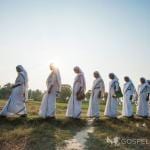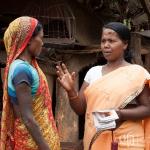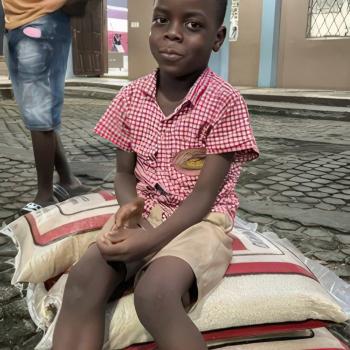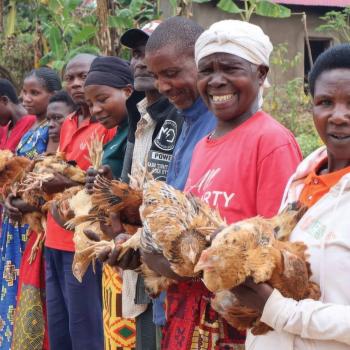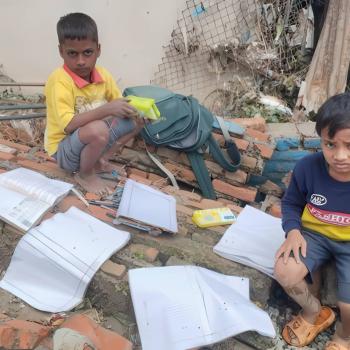WILLS POINT, TX – Gospel for Asia (GFA) issues an extensive Special Report on illiteracy, the dominant disabler to flourishing for millions around the world, and the miraculous potential of literacy, to be able to read and write, that is able to change the lives of men, women and children for generations.
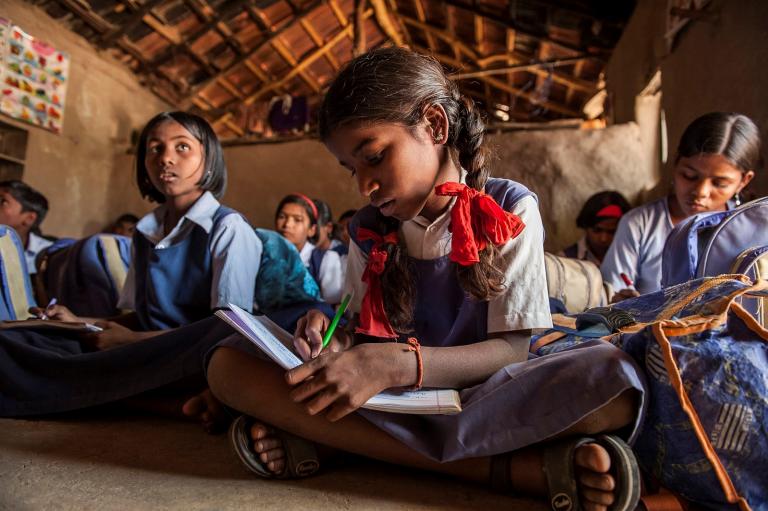
The Complexities of Gaining Literacy
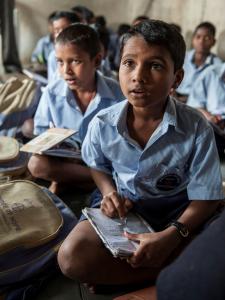
The VeryWellFamily website teaches that the skills needed for reading and writing are not as simple as we so often assume. These skills include such things as the awareness of the sounds of language. These levels of learning will be the same for any culture. First is phonemic awareness: “the
ability to hear and play with the individual sounds of language, to create new words using those sounds in different ways.”
The article breaks down how this actually happens, a process that is quite complicated and mentions digraphs, onsets, rimes and phenomes. It is a process that occurs without intentional phonetically in the natural course of a child’s learning process.
To read and speak fluently, a child must also develop an awareness of print; there’s a road sign, there’s a bathroom sign, here are words on cereal boxes, and, of course, there are books filled with print. The learner must develop an active vocabulary (words generally known and used in conversation, speech and writing) and a passive vocabulary (words that are known but the meanings of which are interpreted through context and use with others).
Achieving literacy for a child includes learning to spell (hence all those spelling tests). This means achieving a comprehension of irregular spelling, silent vowels, diphthongs, etc. He or she must not only be able to read words on a page (or a sign) but also comprehend the meaning of what has been read. This includes the ability to project meaning into the words, to pick up clues in the text, to visualize imaginatively what is occurring through the reading.
To read, to understand what one has read, to voice one’s inner thoughts, to comprehend and communicate the meaning of one’s being so that it can be heard either verbally or through thoughts committed to the page is not such a simple task as those of us who love reading might assume. But the joy, oh the gift of joy, that can be given to one other person or to a classroom of squirmy but nevertheless eager learners is incalculable.
A Lifetime of Illiteracy and the Onset of Leprosy
Gospel for Asia (GFA) chronicles the tale of a woman named Kaavya. She was given this gift of literacy that filled a lifetime of longing when she was 64 years of age. What makes her story even more impelling was the fact that Kaavya also suffered from leprosy. Now, medical knowledge informs us that leprosy is a curable disease, but the stigma of this condition is implanted on the DNA of history, with a record of scorn and communal rejection that is recorded even in the New Testament stories of Christ’s healing encounters with lepers.
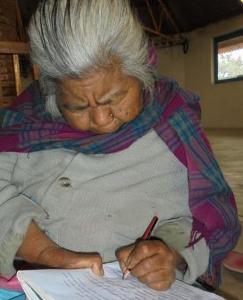
Kaavya’s father contracted leprosy with the result that the community ostracized the whole family. In time, the girl’s father died, and about then she began to experience symptoms of physical pain in her extremities and also a recurring fever. The crushing news from hospital staff indicated that the diagnosis of her difficulties was that she had developed leprosy also.
“It was the worst day and the saddest day in my life,” she said. “What to do? I could not die.”
Eventually, with treatment and medications, she procured a hospital job, but then, because she was illiterate, after 22 years of work, she was let go, unqualified in the eyes of the current staff. She married and settled into family life, but only a few years had passed when she discovered that her husband had a previous family. His first wife bore him eight daughters, and he was hoping some other woman would give him a son.
This is a chronicle of human misery, repeated in the hundreds of thousands of untold stories that exist around the world. But it does not have an unhappy ending.
“After years of hardships, Kaayva came to live in a leprosy colony, making her home with those who experienced the same kind of rejection she had,” the report states.
But here, the Sisters of Compassion, supported by Gospel for Asia (GFA), served the residents by practical needs. One of those expressions was in teaching the skills of reading and writing. Just imagine the meaning of this to a woman who had been expelled from a job of 22 years for being illiterate!
To be able to read and write is a gift of immeasurable worth. It is, indeed, a miracle cure.
“When I joined the literacy class, I learned lots of things,” Kaavya explains. “I learned not only reading and writing; I learned good habits, roles of women, wife and mother in the family. Now I am very happy … I will not lose heart because I can read and write.”
Gospel for Asia (GFA)-supported literacy classes are taught by women missionaries who are trained in teaching reading and writing to adults. They write letters and words on chalk boards and carefully teach each student how to read and write those same letters and words. They guide their students’ hands, helping them become familiar with the feel and use of a pencil. Each woman enrolled in the literacy classes also receives a free literacy book in their local language. For tens of thousands of women across Asia, these free literacy classes have made a world of difference in their lives!
When the Word Became Flesh
I have often thought of Christ as the Great Translator who came to Earth to teach us Heaven’s language and ways.
“And the Word became flesh and dwelt among us, and we beheld His glory, the glory as of the only begotten Father, full of grace and truth” (John 1:14).
Jesus’ life lived on Earth, and now communicated to us existentially through the indwelling of the Holy Spirit, is the ultimate example of a superior language tutorial—one in spiritual literacy. By observing Him, by reading and inculcating His words, we learn to “read and write.” We become spiritually literate. And like those who conquer reading and writing in the everyday world, this too, this inexplicable capacity to know with the soul, brings light and opportunity and almost unbearable joy. Another kind of illiteracy has been overcome. To become literate is exactly what miracle cures are about. It is an intellectual healing, the acquisition of incalculable capabilities and the establishment of approval from others and from oneself. To be able to read and write is a gift of immeasurable worth. It is, indeed, a miracle cure.
WHAT CAN ONE READER DO?
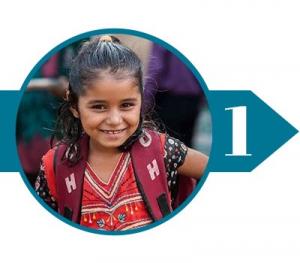 Consider giving to Gospel for Asia’s literacy efforts. Gospel for Asia (GFA)-supported workers have heightened personal exposure to the dilemmas caused by illiteracy and have daily witnessed the power of literacy training to spread Christ’s love, to lift individuals and families out of poverty, to change communities for the better. Undoubtedly, learning to read and write is one way the Word becomes flesh and dwells among us. This, indeed, is a spiritual miracle.
Consider giving to Gospel for Asia’s literacy efforts. Gospel for Asia (GFA)-supported workers have heightened personal exposure to the dilemmas caused by illiteracy and have daily witnessed the power of literacy training to spread Christ’s love, to lift individuals and families out of poverty, to change communities for the better. Undoubtedly, learning to read and write is one way the Word becomes flesh and dwells among us. This, indeed, is a spiritual miracle.
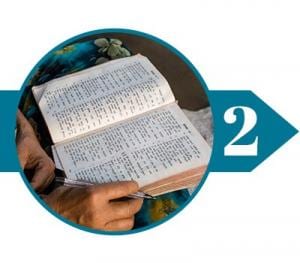 Become intentional about the miracle of being able to read and write. Take some time to consider what it would be like if you were illiterate. Intentionally notice—even notate—the many times you read and write in a day. Then thank God that you were born in a literate culture with systemic educational programs in place to increase your reading and writing capacities.
Become intentional about the miracle of being able to read and write. Take some time to consider what it would be like if you were illiterate. Intentionally notice—even notate—the many times you read and write in a day. Then thank God that you were born in a literate culture with systemic educational programs in place to increase your reading and writing capacities.
 Conduct an Internet exposure regarding the topic of illiteracy in your home country and then around the world. There is something about those online searches that embed the reality of illiteracy in your mind—more than just reading an article about illiteracy.
Conduct an Internet exposure regarding the topic of illiteracy in your home country and then around the world. There is something about those online searches that embed the reality of illiteracy in your mind—more than just reading an article about illiteracy.
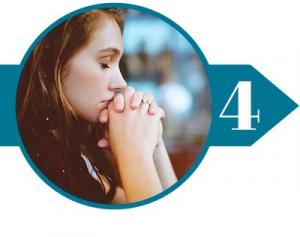 Pray about finding some way you can contribute to the literacy of one person. Discover what is happening in your own community regarding literacy training, and volunteer your time. Take some literacy tutoring training. Find out who is illiterate in your own community. In other words, be intentional.
Pray about finding some way you can contribute to the literacy of one person. Discover what is happening in your own community regarding literacy training, and volunteer your time. Take some literacy tutoring training. Find out who is illiterate in your own community. In other words, be intentional.
Literacy — One of the Great Miracle Cures: Part 1 | Part 2
This Special Report article originally appeared on GFA.org.
Learn more about the Women’s Literacy Program, and how you can help over 250 million women in Asia who are illiterate.
Click here, to read more blogs on Patheos from Gospel for Asia.
Learn more about Gospel for Asia: Facebook | YouTube | Instagram | Sourcewatch | Integrity | Lawsuit Update | 5 Distinctives | 6 Remarkable Facts | Media Room | Poverty Solutions | Endorsements | 40th Anniversary | Lawsuit Response |


